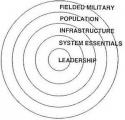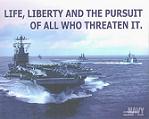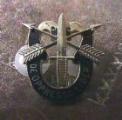You (emphasis mine)should read more carefully. I asked a question about what he(Marc) thinks a politicians job is? Where I live Politicians change funding and laws all the time because they are temporally elected officials they may not have an accurate understanding of the true nature and magnitude of the problem until it is explained to them in detail, at which time they may and often do make changes to funding and manpower and laws.







 )
)




 tonight. In the meantime read this from the SWJ Blog, it's a little complicated for my taste but he it is a start point. My way is better of course
tonight. In the meantime read this from the SWJ Blog, it's a little complicated for my taste but he it is a start point. My way is better of course

Bookmarks